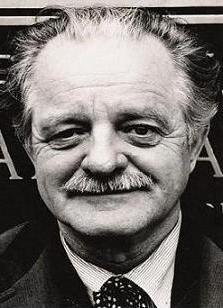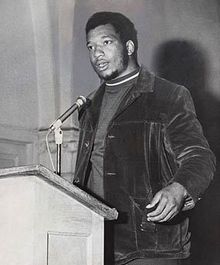A Quote by Kenneth Rexroth
As Aristotle said, you have to be an aristocrat or a reactionary to write a good proletarian poem.
Quote Topics
Related Quotes
We ain't gonna fight no reactionary pigs who run up and down the street being reactionary; we're gonna organize and dedicate ourselves to revolutionary political power and teach ourselves the specific needs of resisting the power structure, arm ourselves, and we're gonna fight reactionary pigs with international proletarian revolution.
We ain't gonna fight no reactionary pigs who run up and down the street being reactionary; we're gonna organize and dedicate ourselves to revolutionary political power and teach ourselves the specific needs of resisting the power structure, arm ourselves, and we're gonna fight reactionary pigs with INTERNATIONAL PROLETARIAN REVOLUTION. That's what it has to be. The people have to have the power: it belongs to the people.
A successful poem says what a poet wants to say, and more, with particular finality. The remarks he makes about his poems are incidental when the poem is good, or embarrassing or absurd when it is bad and he is not permitted to say how the good poem is good, and may never know how the bad poem is bad. It is better to write about other people's poetry.
The aristocrat, when he wants to, has very good manners. The Scottish upper classes, in particular, have that shell-shocked look that probably comes from banging their heads on low beams leaping to their feet whenever a woman comes into the room. Aristocrats are also deeply male chauvinist, and ... on the whole they tend to be reactionary.
I write first drafts with only the good angel on my shoulder, the voice that approves of everything I write. This voice does'nt ask questions like, Is this good? Is this a poem? Are you a poet? I keep this voice at a distance, letting only the good angel whisper to me: Trust yourself. You can't worry a poem into existence.
I started out in graduate school to be a fiction writer. I thought I wanted to write short stories. I started writing poems at that point only because a friend of mine dared me to write a poem. And I took the dare because I was convinced that I couldn't write a good poem... And then it actually wasn't so bad.





































